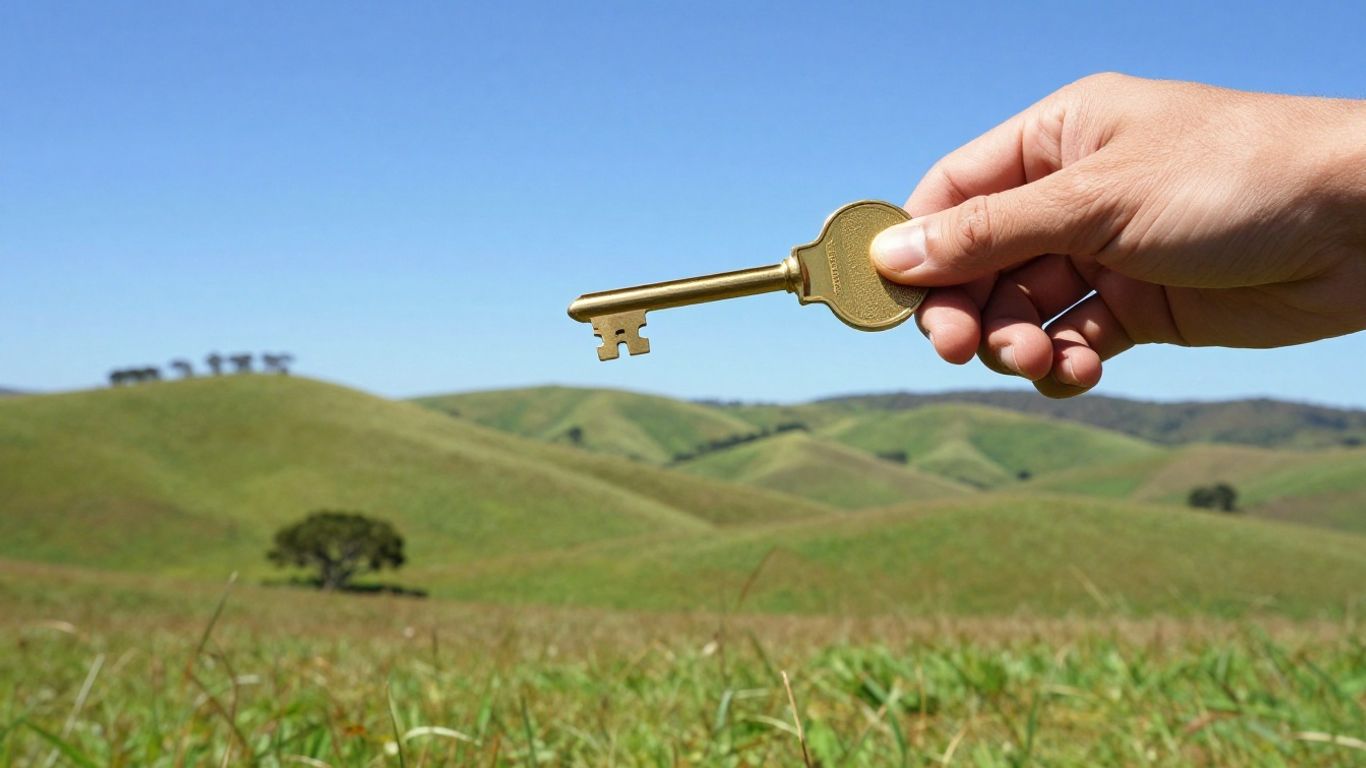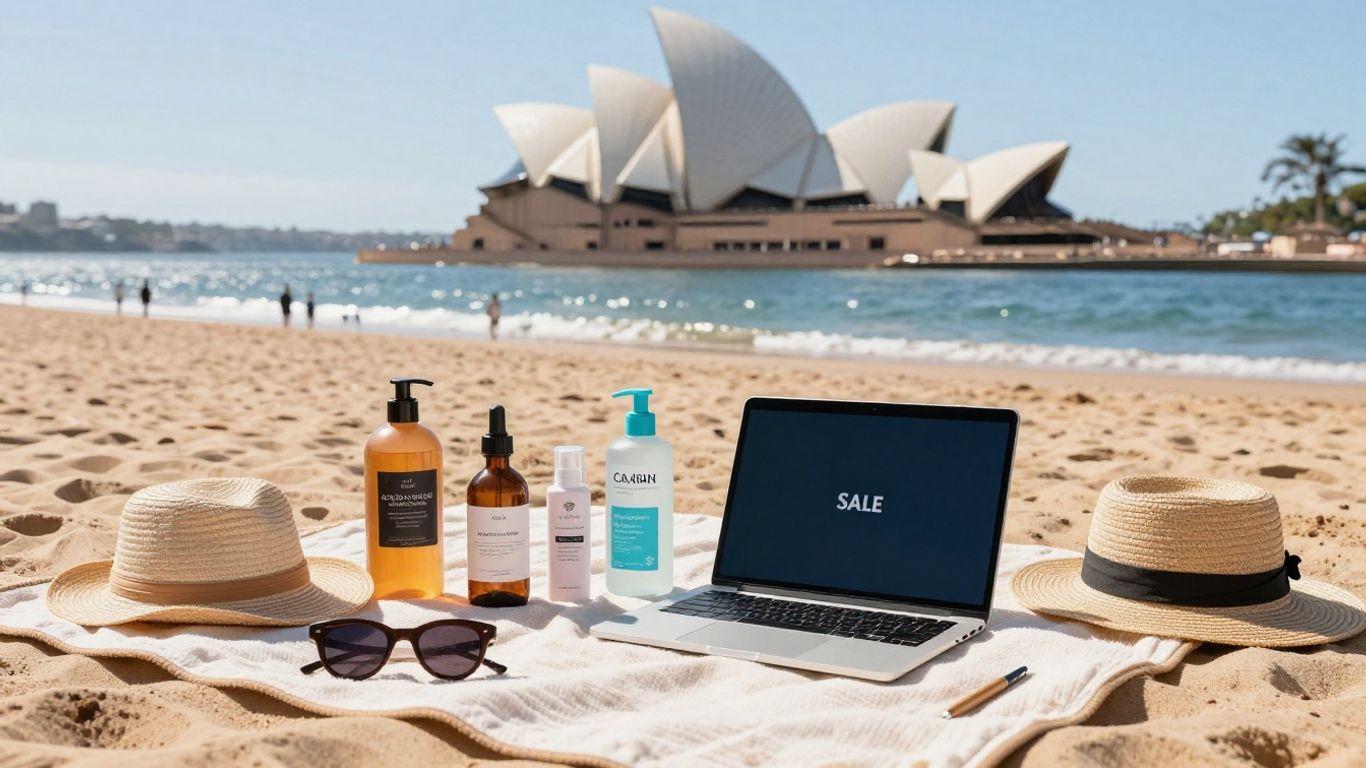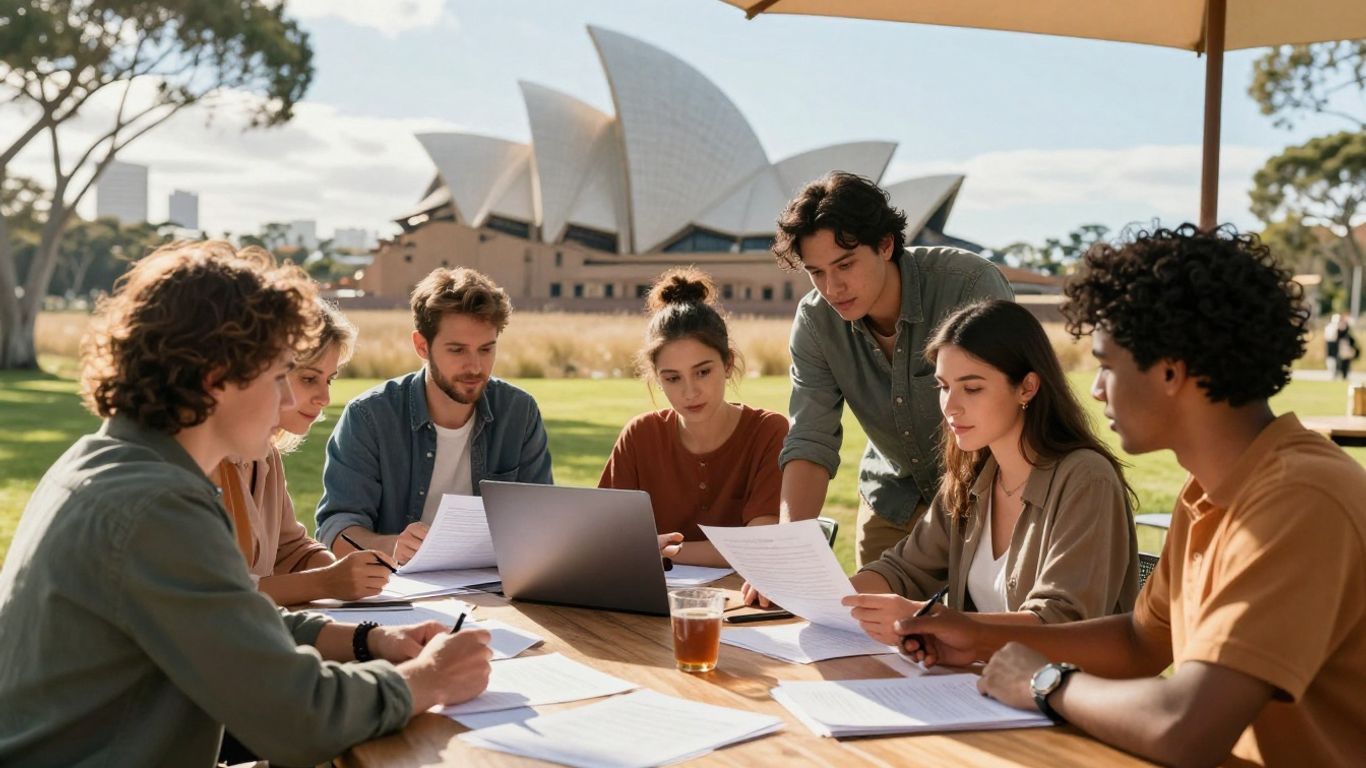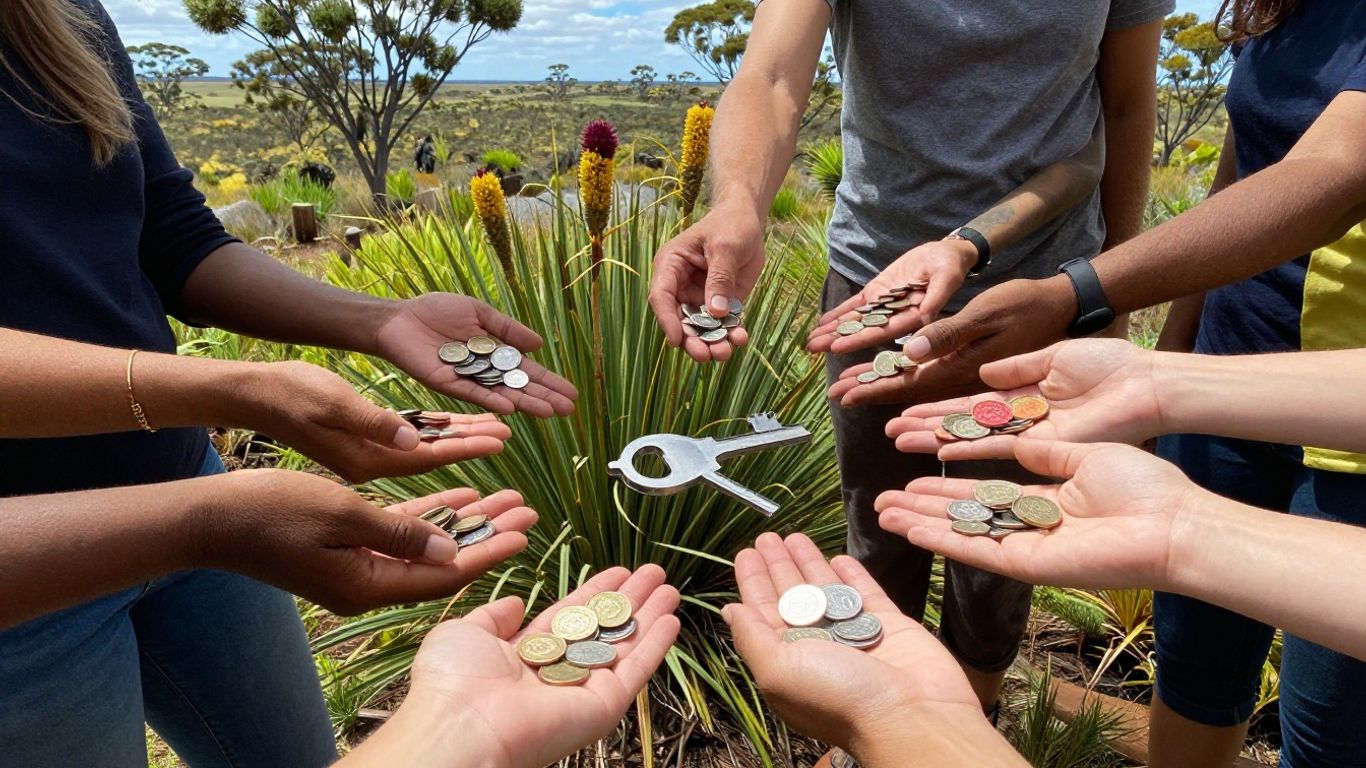G’day, mates! So, you’re keen on getting your finances sorted, eh? This article is all about budgeting, helping you stretch those Aussie dollars further, whether you’re planning a big trip around our amazing country or just trying to save a few quid in your daily life. We’ll cover everything from understanding our local currency to making smart choices at the supermarket. Get ready to become a budgeting legend!
Key Takeaways
- Understanding how Aussie money works is super important for anyone here, whether you’re visiting or staying.
- You can have an awesome time in Australia without spending a fortune if you plan your travel and accommodation smart.
- There are heaps of ways to save cash on everyday stuff, like groceries and even big events.
- Keeping track of your spending and setting money goals can really help you get ahead.
- Knowing a bit about Australian banking and our healthcare system is a good idea for anyone living here.
Cracking the Code of Aussie Dollars
Understanding the Exchange Rate
Right, so you’re heading to Australia? First thing’s first, gotta get your head around the Aussie dollar. It’s not as scary as it looks, promise! The exchange rate fluctuates, so keep an eye on it before you travel. You can use a currency converter website to get the latest rates. Just remember that what you see online isn’t always what you’ll get when you actually exchange your dosh – banks and exchange places add their fees, naturally.
Navigating Cash and Cards
Okay, so how do you actually pay for stuff? Well, both cash and cards are widely accepted, but there are a few things to keep in mind.
- Cash is still king for smaller purchases, especially at markets or smaller cafes. Plus, it helps you keep track of your spending – physically handing over the notes makes it feel more real, doesn’t it?
- Cards are great for bigger expenses like accommodation or tours. Visa and Mastercard are pretty much universally accepted, but Amex and Diners Club? Not so much. And always let your bank know you’re travelling, otherwise they might block your card thinking it’s been nicked.
- ATMs are everywhere, so getting cash isn’t usually a problem. Just watch out for those pesky transaction fees.
Prices often end in odd amounts like $2.71, but don’t stress, they round to the nearest 5 cents at the checkout. So $2.71 becomes $2.70, and $2.73 becomes $2.75. It’s a weird quirk, but you get used to it.
Smart Spending on the Go
Alright, let’s talk about not blowing your entire budget in the first week. Here’s a few pointers:
- Look for deals and discounts. Heaps of places offer student or backpacker discounts, so always ask.
- Embrace public transport. It’s generally pretty good in the cities, and way cheaper than taxis or Ubers. Get yourself an Opal card in Sydney or a Myki in Melbourne. Travel expenses can add up quickly if you’re not careful.
- Cook your own meals sometimes. Eating out every night is a surefire way to empty your wallet. Hit up a local supermarket and whip up something simple. Sausages on the barbie, anyone?
Budgeting for Your Big Trip Down Under
Planning Your Travel Expenses
Alright, so you’re dreaming of heading to Australia? Strewth, it’s gonna be bonza! But let’s be real, it can also be a bit exxy. First things first, figure out how long you’re going for and what you wanna do. Jot down all the big stuff: flights, accommodation, tours, and then the daily stuff like food and transport. Don’t forget to factor in a bit extra for unexpected costs – because, let’s face it, something always pops up.
- Flights: Shop around! Use comparison websites and be flexible with your dates. Mid-week flights are often cheaper.
- Accommodation: Hostels, Airbnb, or budget hotels are your mates here. Consider locations outside the city centre for better deals.
- Activities: Prioritise what you really want to do. Some things, like seeing the Great Barrier Reef, are worth splashing out on, but there are always free options too, like hitting up the beaches or exploring national parks. Check out package deals for savings.
Remember to check the exchange rate regularly. It can fluctuate, and that can impact your budget. A little bit of planning goes a long way in making sure you don’t blow your budget before you even get to see a kangaroo.
Finding Affordable Accommodation
Finding a place to crash that doesn’t break the bank is key. Hostels are a ripper option, especially if you’re travelling solo or keen to meet people. They often have dorm rooms and private rooms, plus communal kitchens to save on eating out. Airbnb can be good too, especially if you’re travelling with a group. Look for apartments or houses outside the main tourist areas for better prices. Budget hotels are another option, but do your research and read reviews before booking.
- Hostels: Great for socialising and saving money.
- Airbnb: Can be cheaper than hotels, especially for groups.
- Budget Hotels: Look for deals and read reviews carefully.
Consider these options:
| Accommodation Type | Average Price (AUD per night) | Pros | Cons |
|---|---|---|---|
| Hostel (Dorm) | $30 – $50 | Cheap, social, communal facilities | Can be noisy, less privacy |
| Airbnb (Apartment) | $80 – $150 | More space, kitchen facilities | Can be inconsistent, cleaning fees |
| Budget Hotel | $100 – $200 | Private room, often includes breakfast | Can be basic, less character |
Savouring Local Flavours on a Budget
Eating out every night can drain your funds faster than you can say "another shrimp on the barbie!" So, get creative with your meals. Supermarkets are your friend. Buy groceries and cook your own brekkie and lunch. Pack snacks for day trips to avoid impulse buys. Look for pubs that offer lunch specials or happy hour deals. And don’t be afraid to try the local takeaway – it’s often cheaper and just as tasty as a fancy restaurant.
- Cook your own meals: Hit up the supermarkets and get cooking.
- Lunch specials and happy hour: Pubs often have great deals during the day.
- BYO restaurants: Some restaurants allow you to bring your own booze, saving you a fortune on drinks.
Savvy Strategies for Saving Your Pennies

Alright, let’s talk about keeping those hard-earned dollarydoos in your pocket. It’s not about being stingy; it’s about being smart. We all want to enjoy life, but we also want to avoid ramen noodles for the rest of our days. So, here are a few ripper strategies to help you save without feeling like you’re missing out.
Cutting Costs Without Cutting Fun
Saving money doesn’t have to mean sacrificing all the good stuff. It’s about finding clever ways to enjoy yourself without blowing the budget. Think about it – do you really need that daily latte from the cafe, or could you brew a decent cuppa at home? Small changes can make a big difference over time.
- Embrace Free Activities: Australia’s got heaps of free stuff to do. Hit the beach, go for a bushwalk, check out a free museum, or attend a local festival. The possibilities are endless!
- BYO Everything: Pack your own lunch, snacks, and drinks whenever possible. Eating out adds up quickly, so bringing your own grub is a simple way to save.
- Happy Hour Hero: Take advantage of happy hour deals at your local pub. You can still enjoy a cold one without paying full price.
It’s easy to fall into the trap of thinking you need to spend big to have a good time. But often, the best memories are made doing simple, inexpensive things with mates.
Off-Season Travel Perks
Travelling during peak season can be a real wallet-drainer. Flights and accommodation prices skyrocket, and everywhere is packed with tourists. But if you’re flexible with your dates, you can score some serious bargains by travelling during the off-season. Plus, you’ll avoid the crowds!
Consider these points:
- Shoulder Seasons: Aim for the months just before or after the peak season. The weather is still decent, but the prices are much lower.
- Mid-Week Travel: Flights and accommodation are often cheaper during the week than on weekends.
- Be Flexible: If you’re not tied to a specific destination, be open to travelling to places that are offering good deals.
Package Deals for a Bargain
Package deals can be a fantastic way to save money on your travels. Bundling your flights, accommodation, and activities together can often work out cheaper than booking everything separately. Plus, it saves you the hassle of having to organise everything yourself.
Here’s a quick comparison:
| Item | Individual Booking | Package Deal | Savings |
|---|---|---|---|
| Flights | $300 | Included | |
| Accommodation | $500 | Included | |
| Activities | $200 | Included | |
| Total | $1000 | $800 | $200 |
Before you book, make sure you do your research and compare prices from different providers. And always read the fine print to make sure you know exactly what’s included in the package. You can use MoneySmart budget planner to help you plan your trip.
Everyday Hacks for Your Wallet
Saving on Groceries
Right, let’s talk tucker. Groceries can absolutely chew through your budget if you’re not careful. But don’t stress, there are ripper ways to keep those costs down without living on beans and toast. Planning your meals for the week is a game changer.
- Check out the weekly specials at your local Coles or Woollies. They usually drop new deals on Wednesdays.
- Embrace generic brands. Often, they’re made in the same factory as the big names, just with different packaging. You can save a fair bit.
- Don’t shop when you’re hungry! Everything looks good when your stomach’s rumbling, and you’ll end up buying stuff you don’t need.
- Consider buying in bulk for non-perishable items like rice, pasta, or cleaning products. Just make sure you’ll actually use it all before it goes off.
Look, nobody’s perfect. We all get tempted by those fancy biscuits or that new flavour of chips. But if you can stick to your list and avoid impulse buys, you’ll be amazed at how much you save. It’s all about being mindful of what you’re chucking in the trolley.
Making Money Through the Sharing Economy
The sharing economy is a fair dinkum goldmine these days. Got a spare room? Chuck it on Airbnb. Got a car you only use on weekends? Rent it out on Car Next Door. Skills in writing, design, or coding? Jump on Airtasker or Fiverr. There are heaps of ways to boost your income without getting a second job.
Here’s a few ideas:
- Rent out your parking space if you live near a train station or a busy area.
- Offer pet-sitting or dog-walking services. Aussies love their pets!
- Sell your unwanted clothes and household items on Gumtree or Facebook Marketplace.
Simple Ways to Save on Big Events
Weddings, birthdays, anniversaries… they all add up, don’t they? But you don’t have to break the bank to celebrate. A bit of planning and creativity can go a long way. Consider these tips for wedding savings:
- DIY decorations: Get crafty and make your own decorations instead of buying expensive ones from the shops.
- Potluck parties: Ask guests to bring a dish to share. It’s a great way to save on catering and get everyone involved.
- Off-peak celebrations: Hosting an event on a weekday or during the off-season can often save you a bundle on venue hire and other costs.
| Item | Cost (DIY) | Cost (Store-Bought) | Savings |
|---|---|---|---|
| Decorations | $50 | $200 | $150 |
| Invitations | $20 | $80 | $60 |
| Cake | $30 | $100 | $70 |
| Total | $100 | $380 | $280 |
Mastering Your Money Management
Tracking Your Spending Habits
Right, so you wanna get a handle on your dosh? First thing’s first: you gotta know where it’s all going. Tracking your spending is the bedrock of any good budget. It might sound like a drag, but trust me, it’s worth it. There are heaps of apps these days that link straight to your bank account and automatically categorise your spending. Or, if you’re old school, a simple spreadsheet will do the trick.
- Use a budgeting app (like Pocketbook or Frollo – they’re Aussie made!).
- Keep receipts for a week and manually enter them into a spreadsheet.
- Check your bank statements regularly and highlight spending categories.
It’s easy to think you know where your money goes, but until you actually track it, you’ll probably be surprised. Little things like daily coffees or sneaky online shopping can really add up over time.
Setting Financial Goals
Okay, you know where your money is going. Now, what do you want it to do? Setting some financial goals gives you something to aim for. These don’t have to be massive, like buying a mansion on the Gold Coast. They can be small and achievable, like saving for a weekend getaway or paying off a credit card. Having clear goals makes it easier to stay motivated and stick to your budget. Think about what’s important to you. Do you want to gain control of your finances or travel more?
- Write down your goals – make them specific, measurable, achievable, relevant, and time-bound (SMART).
- Prioritise your goals – what’s most important to you right now?
- Break down big goals into smaller, manageable steps.
Building a Budgeting Routine
Alright, you’re tracking your spending and you’ve got some goals in mind. Now it’s time to build a budgeting routine. This is where you actually put all that information to work and create a plan for your money. There are heaps of different budgeting methods out there, so find one that works for you. Some people like the 50/30/20 rule (50% needs, 30% wants, 20% savings), while others prefer a zero-based budget (where every dollar is allocated). The key is to be consistent and review your budget regularly. Life changes, so your budget should too.
| Category | Percentage | Example (Based on $4000 Income) |
|---|---|---|
| Needs | 50% | $2000 |
| Wants | 30% | $1200 |
| Savings & Debt Pay | 20% | $800 |
- Choose a budgeting method that suits your lifestyle.
- Schedule regular budget reviews (weekly or monthly).
- Be flexible and adjust your budget as needed.
Aussie Life: Budgeting Beyond Travel

Understanding Australian Banking
Right, so you’re thinking of sticking around, eh? Fair dinkum! First things first, you’ll need to sort out your banking. Opening an account here is pretty straightforward, but there are a few things to keep in mind. Most major banks – like the Commonwealth, Westpac, ANZ, and NAB – offer accounts suitable for newcomers. Look for accounts with low or no monthly fees, especially if you’re just starting out.
- Compare account fees: Some accounts charge monthly fees, while others waive them if you meet certain conditions (like depositing a minimum amount each month).
- Consider online banking: It’s super convenient for managing your money on the go.
- Check for ATM access: Make sure your bank has a decent ATM network, or you might end up paying hefty fees to withdraw cash.
Don’t be shy about asking for help. Bank staff are usually pretty good at explaining the ins and outs of different accounts and helping you find one that suits your needs. Plus, they can help you manage your money like a pro.
Navigating Superannuation
Superannuation, or ‘super’ as we call it, is basically Australia’s retirement savings scheme. If you’re working here, your employer is legally required to contribute a percentage of your wage (currently 11%) into a super fund. It’s money you generally can’t access until you retire, but it’s important to understand how it works. You can usually choose your own super fund, so do a bit of research to find one with good performance and low fees. Consolidating your super accounts can also save you money on fees in the long run.
Here’s a quick rundown:
- Employer contributions: Your employer pays super on top of your salary.
- Fund choice: You usually get to pick your super fund.
- Investment options: Super funds offer different investment options, from conservative to high-growth.
Healthcare System and Your Wallet
Australia has a pretty good healthcare system, with Medicare providing access to free or subsidised medical treatment for citizens and permanent residents. If you’re eligible for Medicare, you’ll be covered for most doctor visits, hospital treatment, and some other health services. However, it doesn’t cover everything, so it’s worth considering private health insurance to cover things like dental, optical, and some specialist treatments. Private health insurance can be a bit pricey, but it can save you a lot of money in the long run if you need extensive medical treatment. Plus, it can give you faster access to certain services and a wider choice of doctors. Remember to shop around and compare different policies to find one that fits your budget and needs. You might even find some affordable accommodation options that include health benefits.
Wrapping It Up: Your Budgeting Journey Down Under
So, there you have it. We’ve gone through a fair bit about getting your money sorted here in Australia. It might seem like a lot to take in, but honestly, it’s not as hard as it looks. Just start small, maybe track your spending for a week or two, and see where your cash is actually going. You’ll probably be surprised. The main thing is to just get started. Don’t stress if it’s not perfect right away; nobody’s budget is. It’s all about making a plan that works for you and then sticking with it, mostly. You’ll be saving a few bucks and feeling better about your finances in no time, trust me.
Frequently Asked Questions
Is Australia a really expensive place to visit?
Nah, not really! Once you’re here, Australia isn’t super pricey. The biggest cost is usually getting here, ’cause it’s a fair way from most places. But the Aussie dollar’s exchange rate can be a bonus for visitors from places like the US or UK, so your money might go further!
How can I save money on my trip to Australia?
You betcha! Travelling during the ‘shoulder seasons’ (like spring or autumn) or even in our winter can save you a stack on hotels. Also, flying mid-week often means cheaper flights. And don’t forget to check out package deals; sometimes you can snag a bargain on flights, hotels, and even some tours all together.
Can I save money on food while I’m in Australia?
Absolutely! Many hotels and serviced apartments have fridges and coffeemakers, so you can whip up brekkie or snacks instead of eating out every meal. Plus, hitting up local markets for fresh produce is a ripper way to save on groceries and try some local goodies.
What’s the best way to handle my money in Australia?
Easy as! You’ll find ATMs everywhere, and credit cards are widely accepted. Just make sure to tell your bank you’re coming to Australia so they don’t block your card. It’s always a good idea to have a bit of cash for smaller shops or markets too.
Are there budget-friendly places to stay in Australia?
Definitely! Australia has heaps of different places to stay. You can find fancy hotels, but also great value B&Bs, serviced apartments with kitchens (which are awesome for families!), and even farmstays if you want a taste of country life. Shop around and you’ll find something that fits your budget.
Should I plan for any extra costs when budgeting for my trip?
It’s a good idea to set aside some cash for unexpected bits and pieces. Things like a bit extra for a special tour you didn’t plan, or if you find a souvenir you just can’t live without. Having a small buffer means you won’t stress if something pops up.





